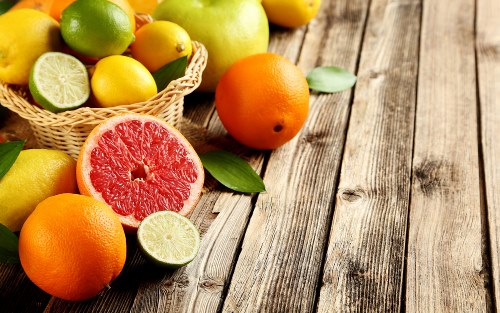Here we go again, another food recall. It seems that these are becoming more and more prominent, pushing consumers to wonder if there are any really safe foods or grocery stores? The FDA has just issued a mass recall of potatoes, lemons, limes, Valencia oranges, and even organic limes due to a potential Listeria monocytogenes contamination.
BREAKING: Shed 42 lbs In 30 Days With This Simple Night-time Pill
Routine inspection raised a red flag
A routine internal inspection of Freshouse II in Salisbury North Carolina identified Listeria on some of the equipment in their packing facilities. According to company officials,
“We have ceased the production and distribution of the product that was packed on the equipment in question and are taking corrective actions and continually evaluating our cleaning and sanitation regimes.”
Recalled items were shipped to retail distribution centers located in North Carolina, South Carolina, Virginia, and Pennsylvania, along with wholesalers in North Carolina and Maryland.
What is Listeria?
Listeria is a bacteria that lives in soil, water, dust, animal poop, and other substances. The bacteria thrives in cooler temperatures and is not even destroyed by freezing. It cannot be detected by smell or sight, making Listeria difficult to notice before eating. Although dairy products are most often contaminated by Listeria, it has also been found in other food items such as deli meat, hummus, soft cheese, and cantaloupe, to name a few.
Listeria can cause severe illness and may be fatal for specific groups of the population. Anyone with a weakened immune system could be at a significantly higher risk of life-threatening health issues associated with a listeria infection, according to the CDC. Pregnant women, infants, the elderly, and those with compromised immune systems, including people with HIV, cancer, and diabetes, are most at risk.
People who are otherwise healthy may also experience symptoms such as severe headache, abdominal pain, achy muscles, nausea, and diarrhea. These symptoms may appear a few days after you eat affected food items, or they can take as much as a couple of months to show up.
The infection can spread to the nervous system, where it becomes quite serious. This condition is known as listeriosis and is fatal in 20% of people who have it. Signs of listeriosis include.
- Headache
- Stiff neck
- Confusion
- Loss of balance
- Convulsions
Listeria can spread inside your home
The FDA also states that listeria can spread once it hits your kitchen counters and refrigerator shelves. The FDA states, “Contaminated food can bring Listeria into the home. Unlike most bacteria, Listeria germs can grow and spread in the refrigerator.”
According to statistics compiled by the New York Times, about 1,600 cases of Listeria appear in the US each year, and about 260 people die from the resulting infection.
What is currently being recalled due to possible Listeria contamination
Fortunately, there have been no illnesses due to potentially contaminated items. Here is a list of products that are being voluntarily recalled. If you or someone you know has eaten any of the products listed below and are experiencing a fever, headache, or abdominal pain, contact a doctor as soon as possible.
- Freshouse Limes sold in 2lb Mesh Bags, UPC #33383 and 14683; Trace # 174618, 174570, 174571, 174572
- Nature’s Promise Organic Limes sold in 1lb Mesh Bags, UPC #88267 and 53813; Trace # 174375
- Fresh From the Start Red B Potatoes sold in 3lb Mesh Bags, UPC #33383 and 51003; Trace # 174575, 174403, 174595
- Fresh From the Start Lemons sold in 2lb Mesh Bags, UPC #33383 and 14020; Trace # 174551, 174552
- Wegmans Lemons sold in 2lb Mesh Bags, UPC #77890, 15917
- Wegmans Valencia Oranges sold in 4lb Mesh Bags, UPC # 77890, 52363
- Wholesale Bulk Lemons sold in 40lb Mesh Bags, Shippers Reference Numbers 1187005, 1187128, 1187103, 1187112
- Wholesale Bulk Limes sold in 40lb Mesh Bags, Shippers Reference Numbers 1187112, 1187099, 1187128, 1186832
- Wholesale Bulk Red Potatoes sold in 50lb Mesh Bags, Shippers Reference Numbers 1187098, 320873, 320992, 2182424
- Wholesale Bulk Valencia Oranges sold in 40lb Mesh Bags, Shippers Reference Numbers 1187099, 1187015, 1187112
What to do if you have purchased one of these products
If you believe that you have any of the potentially contaminated products in your home, do not eat them. Destroy the product so that no one can consume it or return it to the place of purchase for a refund.
Consumers with questions may contact Freshouse II, LLC at 631-369-7150, Monday through Friday, 8 a.m. to 5 p.m. ET. Consumers may also contact the company via email (customerservice@freshouse.com) or visit the company’s website.
Reduce listeria contamination in your kitchen and home by doing the following
- Keep your refrigerator cold, 40 degrees F or lower.
- Wrap and cover foods properly using plastic wrap or containers.
- After three days, ditch your leftovers.
- Clean your refrigerator. The FDA recommends using throwaway paper towels instead of cloth towels, which can transfer germs to other areas of your kitchen.
- Clean your countertops, cutting boards, and utensils with hot, soapy water when finished preparing food.
- Cook meat, poultry, and egg dishes until the temperature reaches 160 degrees F in the center.
- Scrub raw vegetables with a brush under running water.
- Always wash your hands with warm and soapy water before cooking. If you handle raw meat or poultry, wash your hands immediately after handling.
- Keep uncooked meat and poultry away from other food.
- Use deli and lunch meat 3-5 days after opening.
- Stay up to date on the latest recalls and foodborne illness outbreaks by visiting the CDC and FDA websites regularly.
TRENDING: Big Pharma In Outrage Over This Breakthrough Natural Painkiller
Grow your own food
There are many good reasons to grow your own food. For one, you know where your food is coming from, you know who has handled it, and you know that it is fresh. Even just a small kitchen garden with some of your favorite foods can yield a great harvest.
If you don’t have a lot of garden space and want to grow indoors, consider growing microgreens. Microgreens are easy, anyone can grow them, and they are loaded with flavor and nutrition. They make the perfect salad, sandwich, or soup complement, and there are loads of fun and fresh recipes to use them in.









